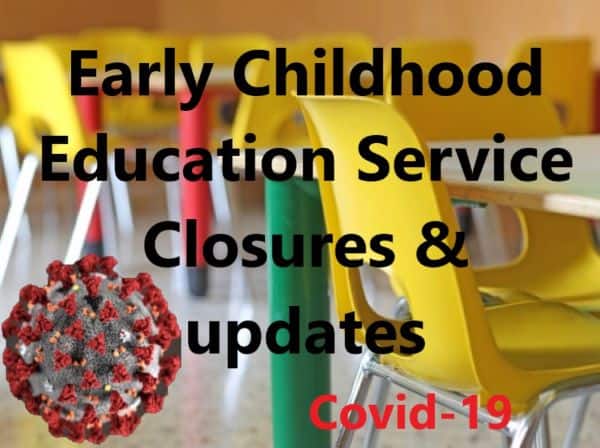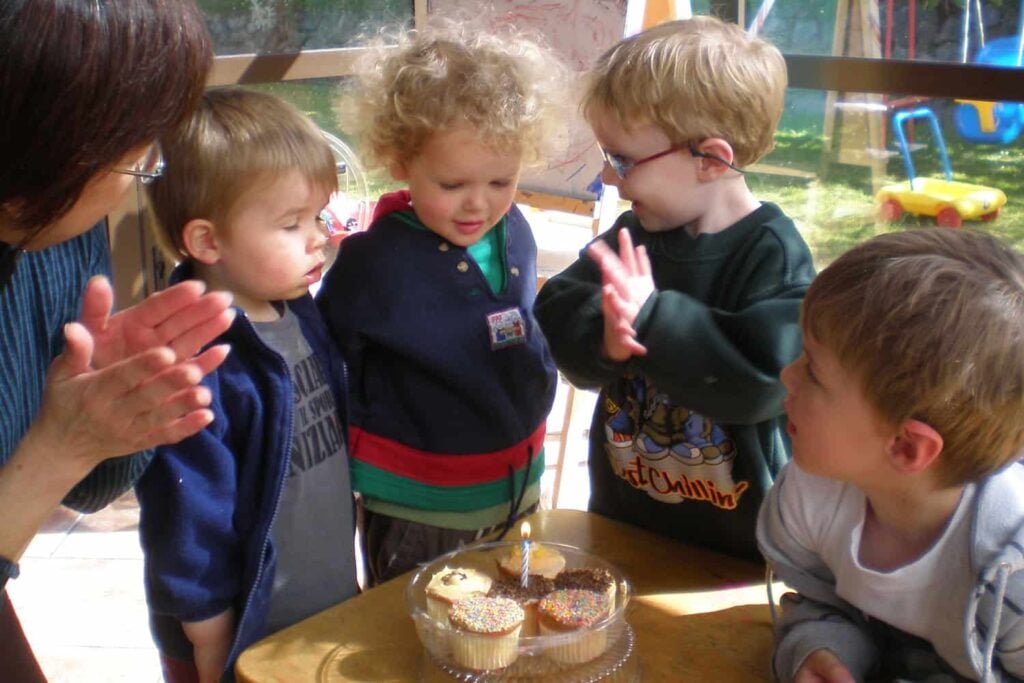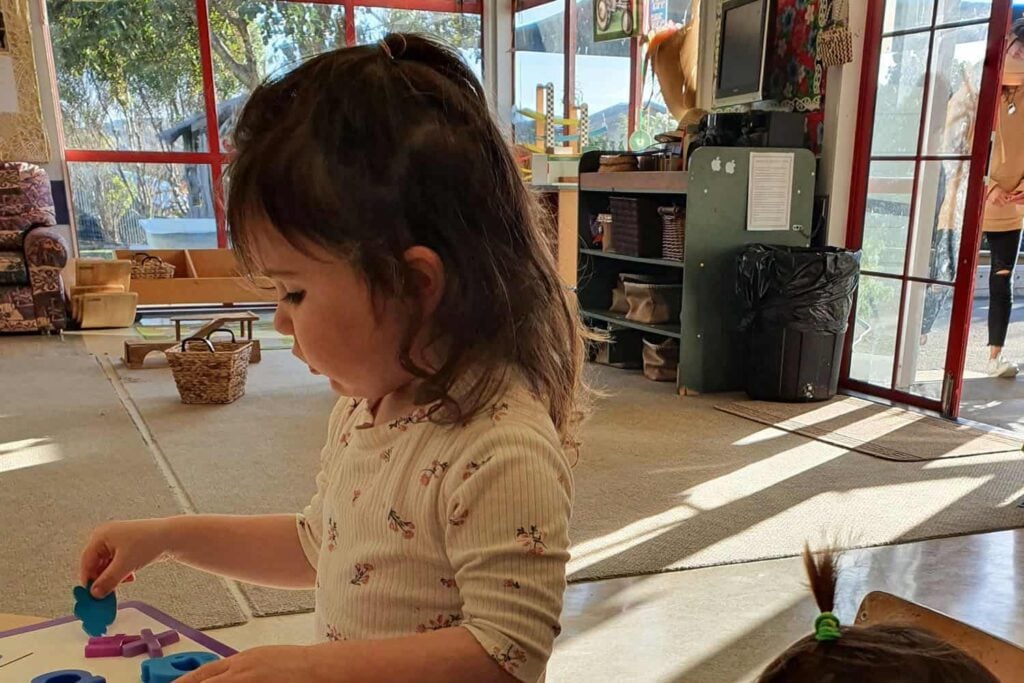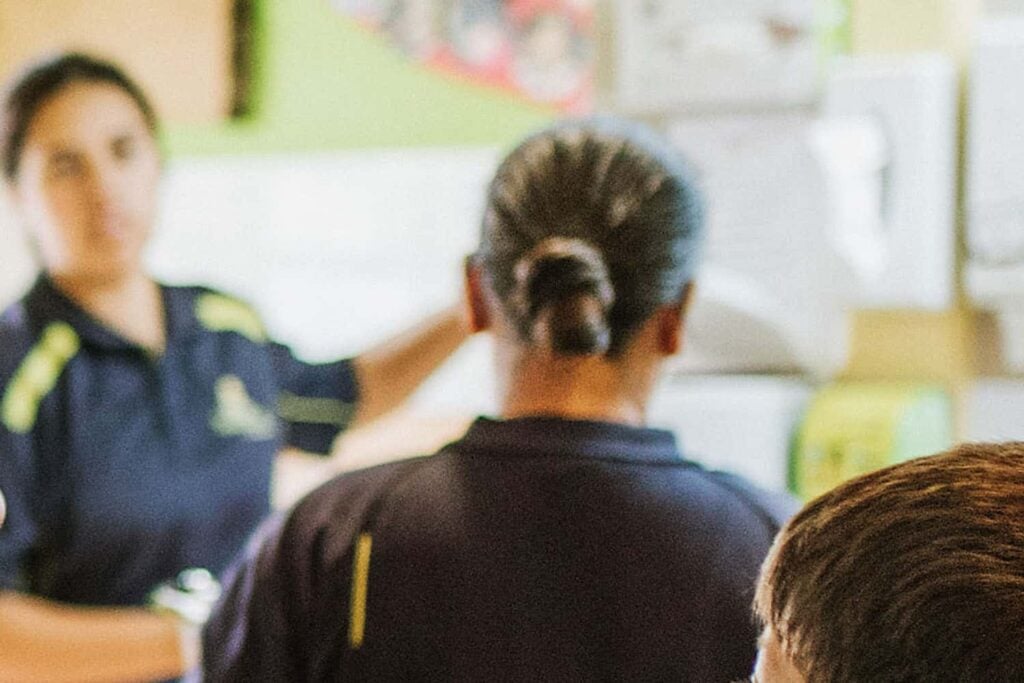April 10, 2013.
The Social Security (Benefit Categories and Work Focus) Amendment Bill was passed into law by 61 to 59 with National, ACT and United Future in favour on April 9th, 2013.
Parents who temporarily rely on the State for financial help to provide for their child will now face a 50% cut in their benefit payment if they do not use (and pay for out of their benefit) the type and amount of early childcare and education they are directed to sign up to.
Parents who value looking after their own child or want to wait for a place to become available at a suitable early childhood service when their child is ready and happy to attend will now risk not having enough money to feed and provide basic necessities for their child. Teachers and early childhood providers potentially will be faced with children and parents who attend not because they want to but because they have to, and maintaining support and partnership with these families will become more difficult.
It would seem that political objectives have won over common sense. Now families, teachers, and ECE providers need to examine the implications and formulate strategies to adjust to the new situation. New issues are likely to emerge that will need to be addressed by the Government and the Ministries of Social Development and Education.
Government’s rationale
A work objective of wanting all beneficiaries to move back into paid work more quickly underpinned the Social Security Bill changes.
The main reason stated for selecting ECE use to become a social obligation was that it would “break intergenerational cycles of disadvantage” by giving a strong work message to parents combined with ensuring that their children from 3 years were educated outside of the family. Internationally it is hard to find another country that has undertaken such a move – the closest parallel to this perhaps is the policy Australia had to westernise Aboriginal children to improve their standard of living by taking them from their families.
Changing the voluntary nature of children’s participation in ECE serves the purpose of supporting the government’s Better Public Services target of 98% of children in ECE by 2016. At present a crude measure of parents ticking a box on the child’s primary school enrolment form to say whether or not their child has attended an ECE service is used. It is expected that when the Ministry of Education’s new electronic system (called ELI) for recording and tracking children’s individual attendance in ECE goes live that the actual participation rate will be found to be much lower. By shoring up the regular attendance of one group of children in ECE for a minimum of two years (between ages 3 and 5) the Government and Ministry of Education officials will be able to turn their attention to finding ways to get the children of non-beneficiary families to participate more in ECE.
Evidence showing a need to make parents use a childcare/ECE service
There is no strong evidence that this will lift children’s educational achievement.
The Government does not have exact data on the number of children of people on benefits already participating in some form of ECE and so it is not known if there will be greater numbers of child enrolments in ECE as a result of the new social obligation.
Implications and adjustments
The implications and options for how to adjust to ECE being turned into a ‘social obligation’ for one group of families in NZ society need to be explored and discussed. Below are some options and ways parents and others may choose or not choose to respond and adjust. Please discuss below and add further suggestions for choices that might be opened or forced on any group of people or organisations as a result of the new legal requirement.
Parents who want to choose if and when to use ECE and therefore have their benefit payment halved
- Find a way to still be able to afford to pay for essentials such as electricity, food and rent. You may need to rely on charity and make frequent use of the local foodbank. It may mean you are faced with little choice but to engage in activities for cash such as prostitution.
- Or, if the above is not an option then be prepared for Child Youth and Family possibly deciding that your child needs to go into State care.
- Keep a record of your daily activities with your child to show that you are caring for your child well. Ask friends, visitors and professionals (e.g. your doctor and plunked nurse) to write references attesting to your ability to provide a nurturing and stimulating environment. Share this evidence with your case worker at each of the three warning meetings leading up to the possibility of your benefit money being cut. If your benefit money is reduced because it is deemed that you are a bad parent and should be complying with the social obligation to put your child into ECE then take your story to the local newspaper and television.
- If you often visit the same friend or neighbour ask your friend or neighbour to sign up with a home-based ECE agency as an educator. This person does not need to be caring for other children, you will not need to pay a cent, you will not have obligations to the service such as to help with cleaning, fundraising or serve on a committee, and you are not asked to leave your child unless you want to.
Families who comply and carry the imposed stigma of being a beneficiary when enrolling and using ECE
- The best outcome that can happen is that you have a choice of different ECE options in your area, that you can afford and that have space available for your child. You can pick one that you and your child feels comfortable with, supports you and adds value to your child’s learning. You are pleased that you were made to look for ECE.
- If you decide that it is better to put your child into an unsatisfactory ECE arrangement(s) than to lose half of your benefit payment, you will need to give your child lots of extra support and understanding. Your child will need to become emotionally very resilient while at the same time controlling anger and sadness and not take this out on other children and adults where they are left in care.
- Keep a careful record of all charges and fees paid along with expenses for transport, lunch-box, clothing such as a sunhat as specified by the service, getting a copy of your child’s birth certificate, doctor’s bills and chemist charges e.g. for head lice shampoo. This information will tell you how much your benefit payment has been reduced by the social obligation and may help for application for more financial assistance.
- Meet all requirements of the ECE service, including for attendance and fee charges, and do not complain even when things are not going well, e.g. if your child is hurt. The majority of ECE services are regarded by the Ministry of Education as being private operations which are under no obligation to continue to accept a child or family whom they consider to be trouble.
- However, for your child’s sake (and possibly for other children at the service too) it is best to lay a formal complaint by contacting the Ministry of Education office in your region if your child is harmed or the service is not up to scratch. If you would prefer to exercise your right to withdraw your child from an ECE arrangement then ensure you have collected written evidence, including photos and recordings if these would help, so that your case worker may be more likely to understand your reasons for not meeting the social obligation.
Parents providing a recognised home-based ECE service
- If you or your partner receives a government benefit check that you will not be made to place your child with another home-based educator or at an ECE centre to meet the social obligation requirement. If you are told that you are good enough to educate other people’s children but not your own child then complain, join with other home-based ECE educators and lobby the Government, and take your story to the media.
ECE services
- Consider the ethics of making parents, who are already financially stretched and for whom ECE use is an obligation and not a choice:
- enrol in more hours of ECE than it is determined that they need to meet the social obligation
- pay optional charges and fees – especially if you are claiming money from the Ministry of Education under the 20 Hour Funding scheme rate
- pay the costs of other things you require such as a copy of the child’s birth certificate, any equipment and resources such as lunch-box, sunhat, stationery, etc.
- pay an enrolment fee and not refund this if you cannot offer them a place immediately when they need to put their child into ECE or have their benefit payment reduced
- pay a deposit to hold a place open for their child to start on the child’s 3rd birthday instead of juggling the roll so you know a place will be open or refer the parent to another ECE provider.
- Provide parents with options for transport (e.g. travelling with another parent who has a car), provide transport at your own cost to help to ensure that the child arrives and transport is not a barrier to parent ability to meet the social obligation.
- Do not expect or require parents to make contributions beyond their child attending your service (e.g. attending parent education evenings at your centre, serving on the committee, and cleaning or other duties).
Implications for the State
- WINZ staff will need to undergo specialised early childhood training and have on-going supervision and support to minimise risks to children and families from making a wrong call about a child’s ability to attend any one ECE service and the impact on the family.
- Requiring parents to put their child into ECE means that the State has an obligation to ensure children’s safety from injury and that no harm occurs. The Government therefore should consider stepping up its ECE service quality control and assurance procedures and processes. Also, as higher educational achievement has been promised then this too needs to be assured. Parents may have legal recourse to sue the State if their child experiences harm physically or emotionally and if the standard of teaching is such that their child does not make learning gains beyond the expected developmental level.
- The Government and its officials need to consider how they will respond to pressure and arguments from:
- people in the ECE sector who operate their services as businesses for the purpose of profit to push the number of hours out that a child of beneficiary must attend ECE
- competing ECE groups to give priority to referral and making it easier for beneficiary families to use their type of service over another service.
- If the children of home-based ECE educators are recognised as being enrolled in ECE for the purpose of meeting the social obligation requirement, then parents who are not working for a home-based ECE agency may sign up with one to get around the social obligation. This in turn will add to government expenditure in education on ECE.
- The case for making ECE compulsory for all children is now strengthened by the Government making ECE attendance a requirement for one group of children – because if it is that important for the Government to require one group of children to attend then why not all?.
- The right of parents to choose whether or not to use childcare may become an election issue. If it does we could see the revival of the debate about who is best to care for children when they are very young.
ECE Sector Opinion
We know that enthusiasm in the ECE sector for making any group of parents use ECE is low, though the ECE sector will adjust as it has adjusted to many other challenges.
An ECE sector national survey by ChildForum that included respondents representing around 2,000 early childhood services found that most (70%) did not want parents to be financially penalised if they chose not to use ECE and just over half did not want ECE to be made compulsory for beneficiaries’ children.
Of the remaining respondents most were not sure – they wanted ECE use by parents to be actively encouraged but only on a case-by-case basis for identified at-risk children rather than a blanket approach.
There was strong preference for parents to have choice when and if to use ECE based on needs and factors such as the quality and cost of services with vacancies.
Not providing an early education intervention until a child is 3 years is considered too little too late for children at risk of poor educational outcomes. The emphasis for at-risk children should be on early family support and making available places on early intervention parenting support programmes.
Freedom of parental choice and working in partnership with families is the basis of the ECE curriculum agreed to and used by all services. Making ECE compulsory, even for only one group of families, to put it simply, threatens the integrity of all that is ECE in New Zealand.
High-quality ECE services understand the impacts on a child whose parents are ‘willing’, knowledgeable, supportive and encouraging of their child’s endeavours. It is easy to see why many in the ECE sector are worried about the disturbing impact on a child and on the other children in their care if a family has been forced to enrol in their service.
Sample of Respondents’ Quotes from Our Survey:
- “In our area the ECE places with spaces have vacancies for a reason. A parent should not be forced to put their child in unless they are 100% satisfied with the place on offer.”
- “We teach independence to children in our centres and then take away their choices when they are adults? It hardly adds up!”
- “Making parents send their children to a childcare/education facility is contradicting the premise that parents are the child’s first teachers and we as teachers need to work with the parents.”
- “Why not recognise parents as suitable educators of their own children? It is ridiculous that any parent who cares for another parent’s child in a centre or through an in-home education agency is accepted to be a capable and trustworthy educator but not when it comes to their own child.”
- “Some people don’t want their children to go somewhere where they are not able to keep an eye on them and make sure that they don’t get hurt.”
- “As a mother there were many times when my own children did not attend Kindy. The reasons ranged from illness (small children can often be unwell), wanting to stay with Mum and go shopping, visiting friends or whatever, to hanging out in Pops garden – these were all wonderful learning environments. We can ill-afford the mind-set that only ECE facilities can provide valuable experiences for children.”
- “The State should only intervene in cases of neglect or abuse when kids truly are vulnerable – and then children should be removed rather than the policy being for these parents to use ECE as a means of reducing this vulnerability.”
- “Some parents already can’t afford to send their child. There is no free ECE any more so why fine them for avoiding another debt? “
- “You can’t legislate to make poor people spend more money when they are already struggling to put food on the table. Make ECE affordable and attractive and they will bring their children.”









